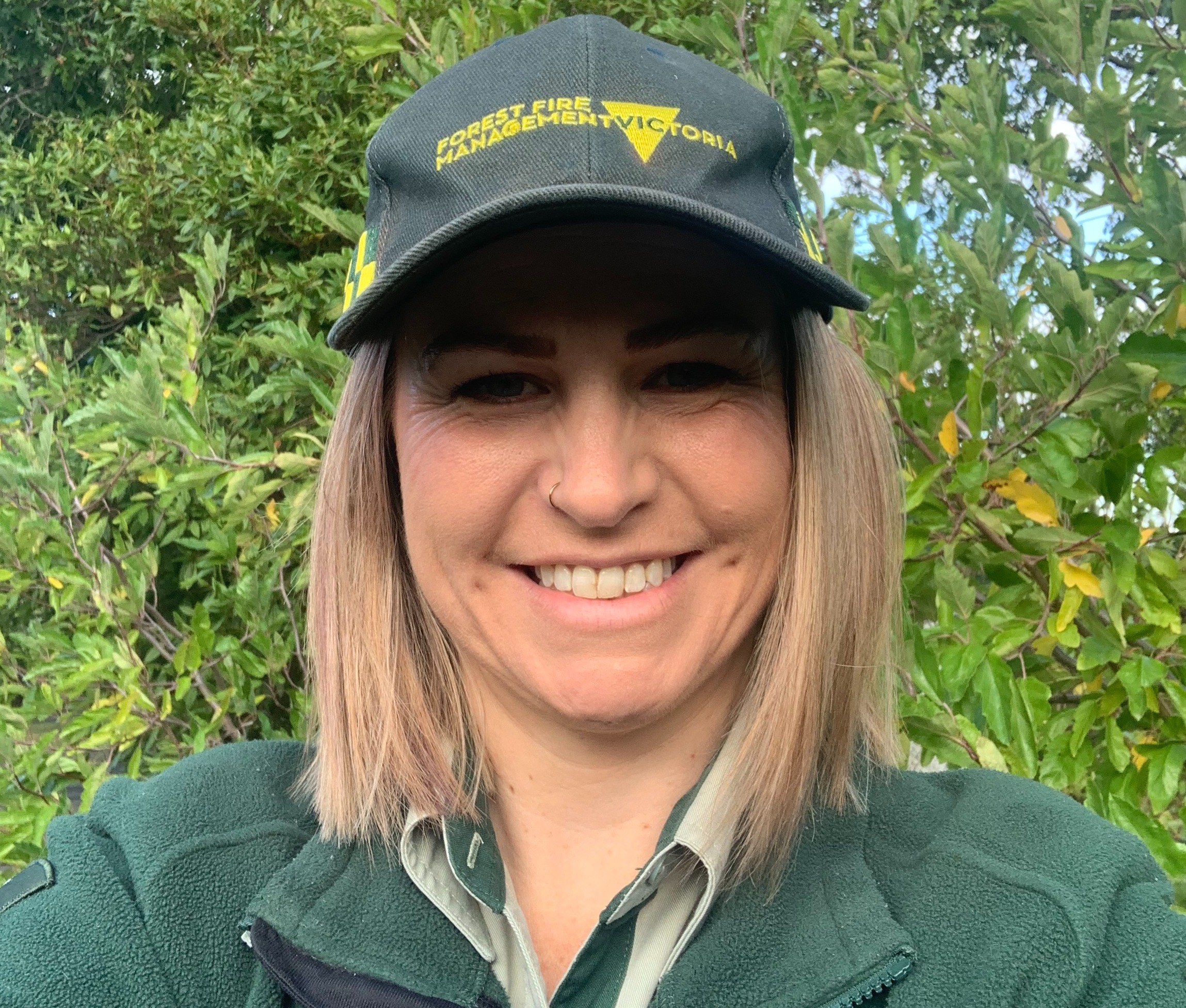As we celebrate International Women’s Day (IWD), Forest Fire Management Victoria (FFMVic) continues to work towards gender diversity and equality in its fire and emergency roles.
We asked Kylie Hyland, Group Manager, Workforce what equity in the workplace meant to her and how she embraced it.
‘For me, equity means equal voice and equal opportunity,’ Kylie said.
‘I find that talking to the people, who are often quiet have a lot of insight, listening with the intent that there is always something to learn.’
 Kylie has worked with FFMVic since 2011 and her fire and emergency role is planning support in the Knox fireroom. She also has had various other ad hoc roles along the way.
Kylie has worked with FFMVic since 2011 and her fire and emergency role is planning support in the Knox fireroom. She also has had various other ad hoc roles along the way.
Kylie feels that one of the great examples of how is FFMVic embracing equity is the introduction of shorter deployments.
‘I have found that FFMVic are progressing in lots of ways to support the women in fire roles and maximising opportunity to contribute and be recognised,’ Kylie said.
‘In Metro District, 4-day deployments have been on offer for a few seasons.
‘This has been a great success, but particularly women with family commitments.
FFMVic recognises that all staff have different needs and ways of working, and that often these can be accommodated and supported to enable the best participation. This means making of the best use of the huge amount of talent available.
Some of the other changes FFMVic have implemented to embrace equity have included the introduction of a 2-piece uniform for wearing out in the field instead of the overall style previous worn. Additional sizing and cuts of uniforms are more inclusive, while women’s sanitary products are included in the first aid kits in vehicles.
Kylie feels that to achieve equity, organisations need to continually look at things differently, whether they are small or big changes.
‘Equity needs to continue to be in the spotlight, making sure people have an understanding and awareness of why it is so important in the workplace,’ she said.
‘There shouldn’t be any unconscious bias about a woman’s ability to perform a role.’
‘We should always assume success rather than be surprised at success.’
‘The best way we can support future generations is to remove the unconscious bias about someone doing a role, or why they got the role.’
Kylie feels that an organisation’s history can be a blessing and a challenge when it comes to barriers in workplaces working to achieve equality.
‘History teaches us about what works, what doesn’t, and how to improve things,’ Kylie said.
‘It can be challenging to change things, like expectations of who could do a job, and do it well, leadership styles and noting that there’s a variety of effective leadership styles in all our roles.
‘But change is important to achieve the diversity needed to have a well-rounded workforce.
‘It is important to be a part of the change you want to see.’